Ursula Le Guin Quotes
Most popular Ursula Le Guin Quotes

The king was pregnant.

What is more arrogant than honesty?
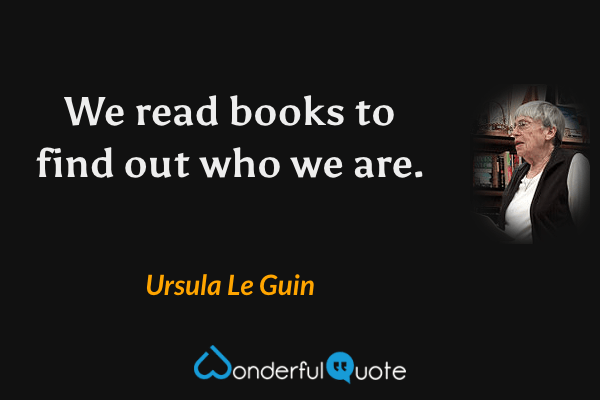
We read books to find out who we are.

To oppose something is to maintain it.

There are no right answers to wrong questions.

The great authors share their souls with us—"literally."

It is very hard for evil to take hold of the unconsenting soul.

It is good to have an end to journey towards; but it is the journey that matters, in the end.

Irreverence toward undeserved authority, and passionate respect for the power of the written word.
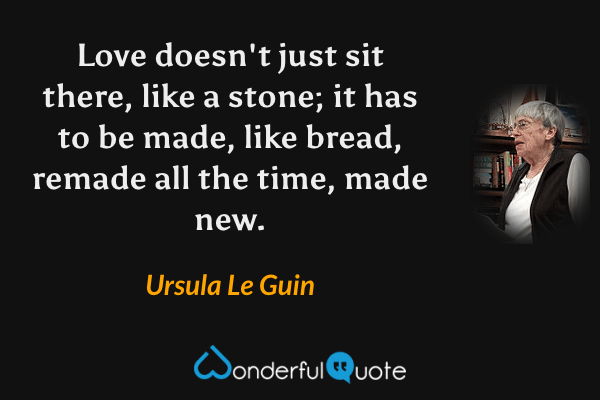
Love doesn't just sit there, like a stone; it has to be made, like bread, remade all the time, made new.
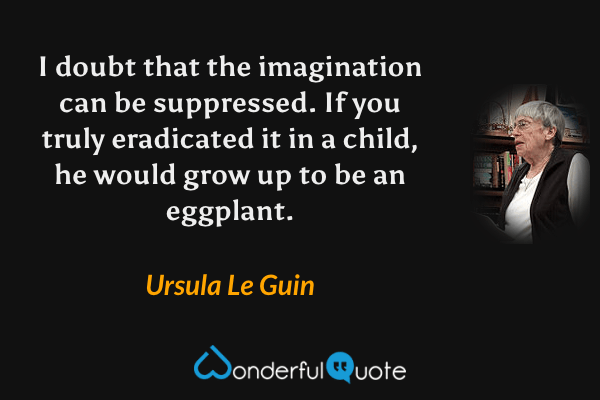
I doubt that the imagination can be suppressed. If you truly eradicated it in a child, he would grow up to be an eggplant.
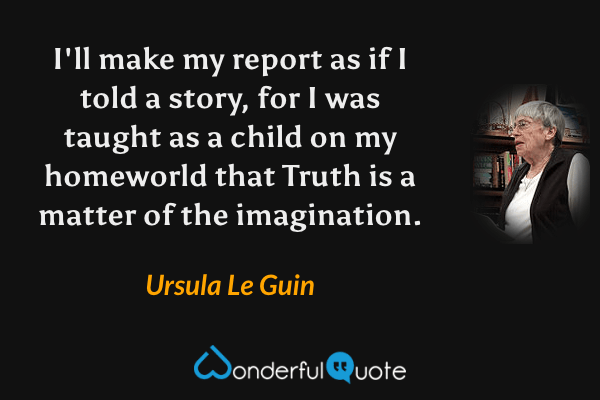
I'll make my report as if I told a story, for I was taught as a child on my homeworld that Truth is a matter of the imagination.
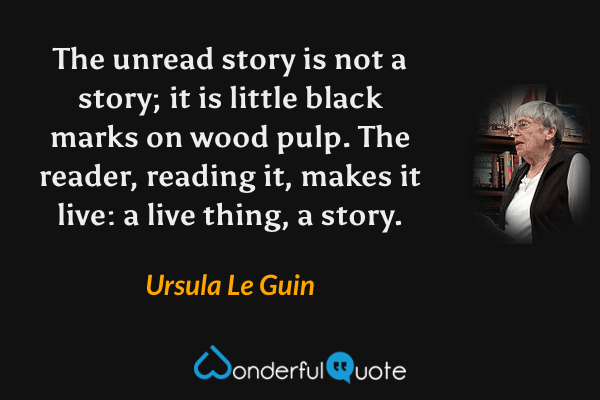
The unread story is not a story; it is little black marks on wood pulp. The reader, reading it, makes it live: a live thing, a story.
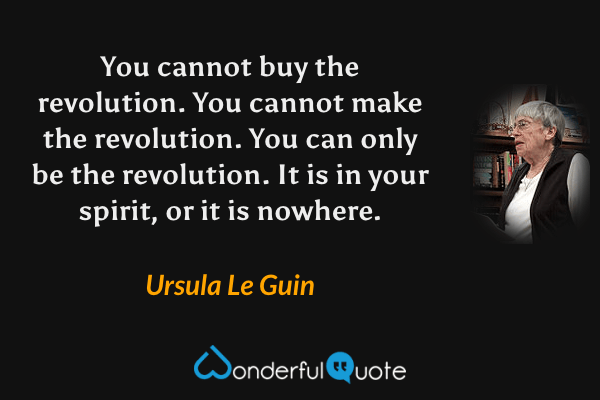
You cannot buy the revolution. You cannot make the revolution. You can only be the revolution. It is in your spirit, or it is nowhere.

I talk about the gods, I am an atheist. But I am an artist too, and therefore a liar. Distrust everything I say. I am telling the truth.
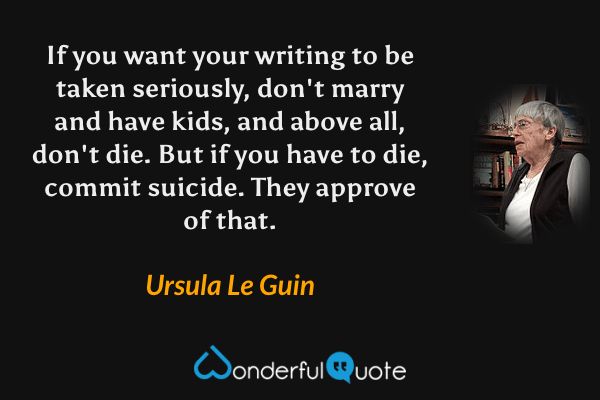
If you want your writing to be taken seriously, don't marry and have kids, and above all, don't die. But if you have to die, commit suicide. They approve of that.

The reason literacy is important is that literature is the operating instructions. The best manual we have. The most useful guide to the country we're visiting, life.

To be, the will to power must increase with each fulfillment, making the fulfillment only a step to a further one. The vaster the power gained the vaster the appetite for more.

The poet Carolyn Kizer said to me recently, "Poets are interested mostly in death and commas," and I agreed. Now I add: Prose writers are interested mostly in life and commas.
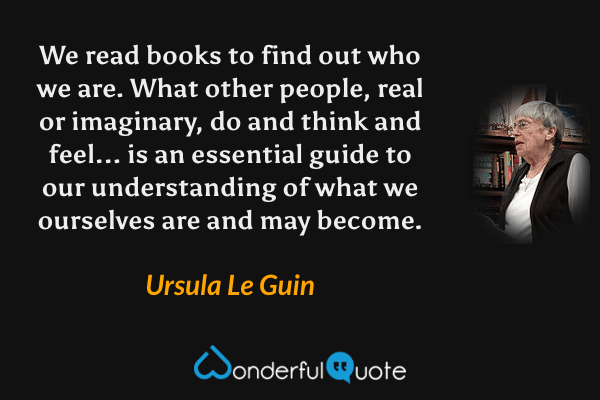
We read books to find out who we are. What other people, real or imaginary, do and think and feel... is an essential guide to our understanding of what we ourselves are and may become.

Do nothing because it is righteous or praiseworthy or noble to do so; do nothing because it seems good to do so; do only that which you must do and which you cannot do in any other way.
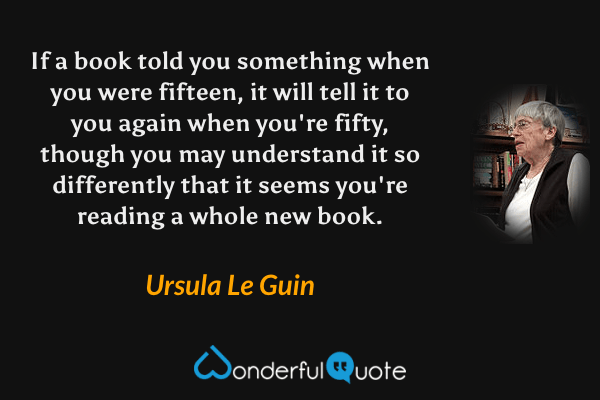
If a book told you something when you were fifteen, it will tell it to you again when you're fifty, though you may understand it so differently that it seems you're reading a whole new book.
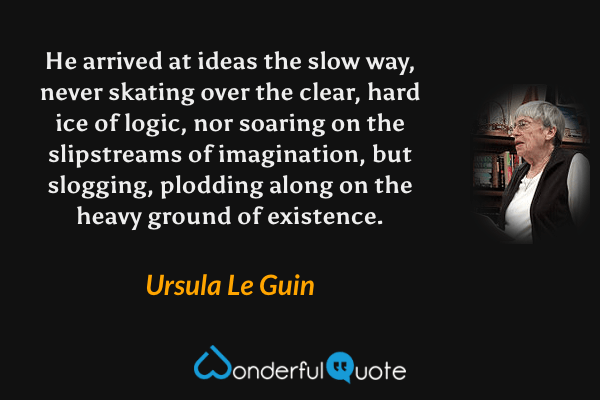
He arrived at ideas the slow way, never skating over the clear, hard ice of logic, nor soaring on the slipstreams of imagination, but slogging, plodding along on the heavy ground of existence.
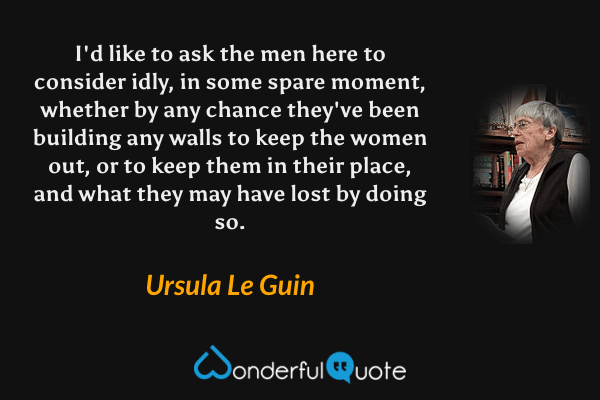
I'd like to ask the men here to consider idly, in some spare moment, whether by any chance they've been building any walls to keep the women out, or to keep them in their place, and what they may have lost by doing so.
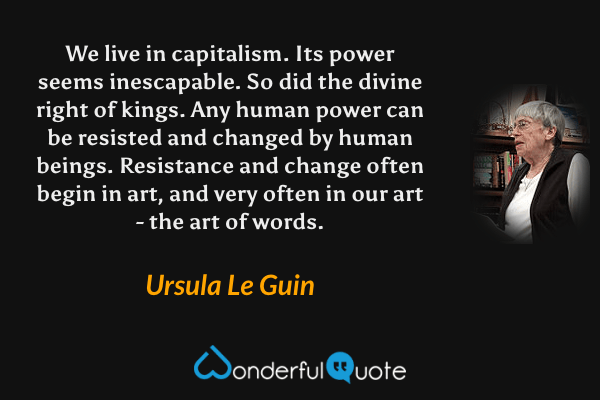
We live in capitalism. Its power seems inescapable. So did the divine right of kings. Any human power can be resisted and changed by human beings. Resistance and change often begin in art, and very often in our art - the art of words.
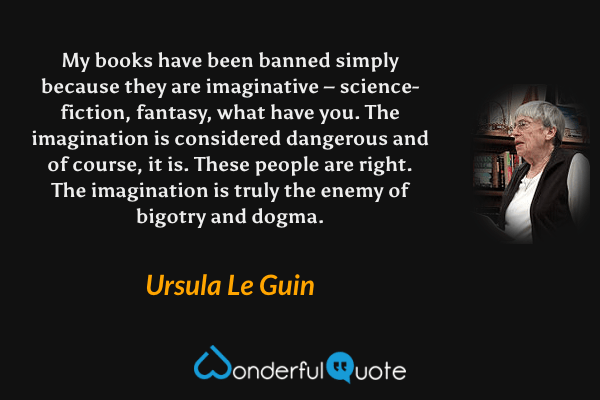
My books have been banned simply because they are imaginative – science-fiction, fantasy, what have you. The imagination is considered dangerous and of course, it is. These people are right. The imagination is truly the enemy of bigotry and dogma.

Sophisticated readers are accepting the fact that an improbable and unmanageable world is going to produce an improbable and hypothetical art. At this point realism is perhaps the least adequate means of understanding or portraying the realities of our existence.
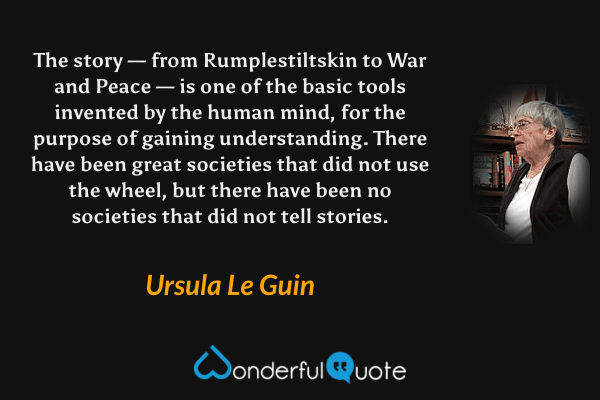
The story — from Rumplestiltskin to War and Peace — is one of the basic tools invented by the human mind, for the purpose of gaining understanding. There have been great societies that did not use the wheel, but there have been no societies that did not tell stories.
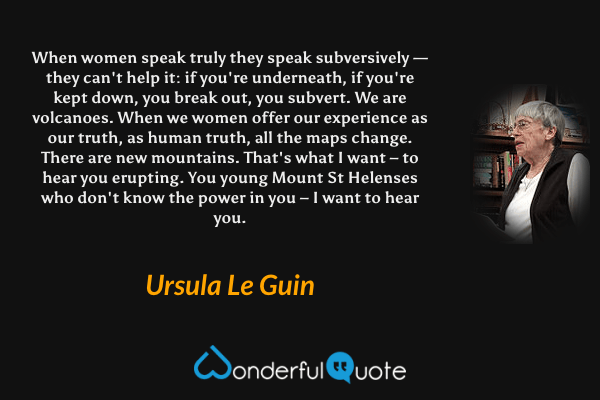
When women speak truly they speak subversively — they can't help it: if you're underneath, if you're kept down, you break out, you subvert. We are volcanoes. When we women offer our experience as our truth, as human truth, all the maps change. There are new mountains. That's what I want – to hear you erupting. You young Mount St Helenses who don't know the power in you – I want to hear you.

How does one hate a country, or love one? Tibe talks about it; I lack the trick of it. I know people, I know towns, farms, hills and rivers and rocks, I know how the sun at sunset in autumn falls on the side of a certain plowland in the hills; but what is the sense of giving a boundary to all that, of giving it a name and ceasing to love where the name ceases to apply? What is love of one's country; is it hate of one's uncountry?

I have frequently described myself as a feminist, because feminist thinking and writing of the '60s and '70s had a huge liberating influence on me, setting my mind free from a whole lot of masculist bigotries and superstitions; and so it would be untruthful and ungrateful not to call myself a feminist... Besides, when you say you're a feminist it annoys the bigots and the old farts and the prissy ladies so much, it's kind of irresistible.
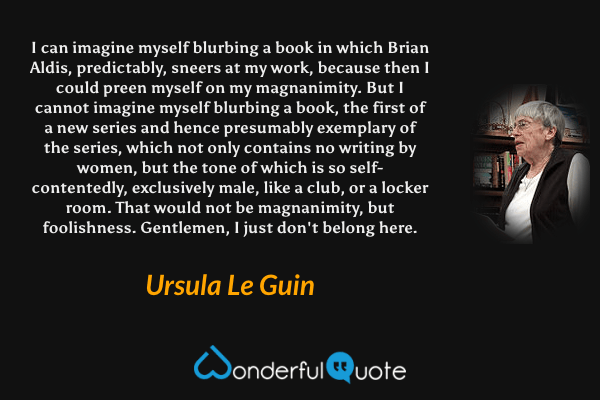
I can imagine myself blurbing a book in which Brian Aldis, predictably, sneers at my work, because then I could preen myself on my magnanimity. But I cannot imagine myself blurbing a book, the first of a new series and hence presumably exemplary of the series, which not only contains no writing by women, but the tone of which is so self-contentedly, exclusively male, like a club, or a locker room. That would not be magnanimity, but foolishness. Gentlemen, I just don't belong here.

You will die. You will not live forever. Nor will any man nor any thing. Nothing is immortal. But only to us is it given to know that we must die. And that is a great gift: the gift of selfhood. For we have only what we know we must lose, what we are willing to lose... That selfhood which is our torment, and our treasure, and our humanity, does not endure. It changes it is gone, a wave on the sea. Would you have the sea grow still and the tides cease, to save one wave, to save yourself?
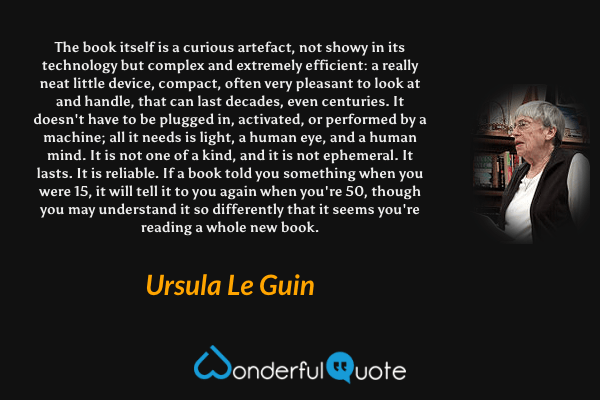
The book itself is a curious artefact, not showy in its technology but complex and extremely efficient: a really neat little device, compact, often very pleasant to look at and handle, that can last decades, even centuries. It doesn't have to be plugged in, activated, or performed by a machine; all it needs is light, a human eye, and a human mind. It is not one of a kind, and it is not ephemeral. It lasts. It is reliable. If a book told you something when you were 15, it will tell it to you again when you're 50, though you may understand it so differently that it seems you're reading a whole new book.
Love doesn't just sit there, like a stone, it has to be made, like bread; remade all the time, made new.
The unread story is not a story; it is little black marks on wood pulp. The reader, reading it, makes it live: a live thing, a story.
The story—from Rumplestiltskin to War and Peace—is one of the basic tools invented by the human mind, for the purpose of gaining understanding.
We live in capitalism. Its power seems inescapable. So did the divine right of kings. Any human power can be resisted and changed by human beings. Resistance and change often begin in art, and very often in our art—the art of words.


